
Questions concerning divine justice and man’s ultimate destiny have always been equally important to theologians and philosophers, as well as to ordinary people. We are all concerned about what awaits us after death and how we can influence our fate in the afterlife. In this article we will turn to the opinions of the holy fathers and contemporary priests in matters pertaining to the perpetuity of hell’s torment and heavenly bliss. Is eternal punishment for temporal transgressions fair? Can a loving God punish forever? Why does God allow eternal suffering and suffering in general? Why does hell even exist? Find out in our article.
Are the torments of hell eternal?
Yes, the Lord repeatedly declares this unambiguously: “Then he will say to those at his left hand, ‘Depart from me, you cursed, into the eternal fire prepared for the devil and his angels…” (Matt. 25:41, see also Matt. 25:46, Mark 9:43, Rev. 14:11).
Hieromonk Job (Gumerov) “Perplexity about the eternity of hell reveals a narrow formal understanding of the issue. Hell is eternal, not because Divine Justice so desires, but because a soul bound to sin remains so forever.”
Can God punish forever?
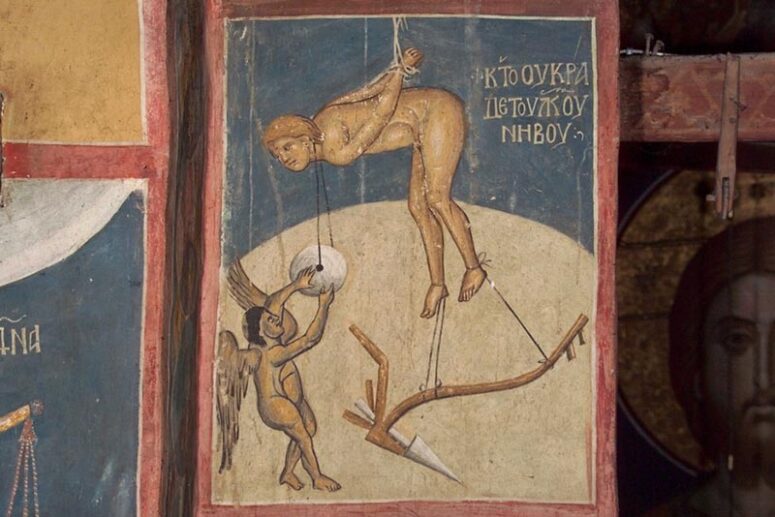
Venerable Barsanuphius of Optina: “At the present time, the laity, as well as young clergy is coming to believe that eternal torment is incompatible with God’s infinite mercy and that, therefore, torment of hell is not eternal. […] An incurable bodily disease ends in death, but how can a mental disease end when there is no death for the soul?”
If one thinks that the cause of eternal punishment and torment is God, then it is certainly not God described in the Bible. The Lord desires for every sinner to repent, “turn from his way and live” (see Ezek. 33:11; 2 Pet. 3:9). Christ died for all of us (see 2 Corinthians 5:15) atoning for the sins of the whole world (see 1 John 2:2). It is a mistake, therefore, to think that God would torment those for whom He has shed His blood, for whom He desires and offers Salvation.
Confession of the Orthodox Faith adopted by the Synod of Jerusalem in 1672:”We know that “God cannot be tempted with evil and He himself tempts no one (James 1:13). God equally desires the salvation of all, with no respect to persons. We confess that condemnation is justly reserved for those who, by their own evil choice and unrepentant heart, have become vessels of filth. We will never say that God, who tells us that there is joy in heaven over one sinner who repents (Luke 15:7), is the cause of eternal punishment and torment, [which would mean that He is full of] cruelty and hatred toward man.”
It is not God who punishes. Every person chooses to live his earthly life with or without God, disposing himself either to good or to evil. This determines whether his life in eternity will be with or without God. In the latter case, a person’s conscience will convict and punish itself.
Can eternal punishment for sins committed during a finite lifetime be considered just?
No one would think to reproach a human court for the injustice of giving punishments far exceeding the duration of the crimes. For example, a murder happens instantly, but the punishment could last for the rest of the offender’s life.
Indeed, the word “fair” does not describe the Judgement of God. Human judgement punishes deeds. If God’s judgement were to be so, then, as St. John Chrysostom noted, we would all immediately be condemned. However the Lord will also look inside people’s hearts. Therefore, a person who has stumbled in life, but obeyed the voice of his conscience, trusted God, and wished to be disposed to good, may be justified at the Judgement. Yet if a man has pursued evil and lived in sin all his life, how is the eternity to which he has condemned himself by his own actions and volition unjust? Why should God’s gift be given to someone who has been rejecting it all his life?
St. John Chrysostom: “Sins are not judged by time, but by the nature of the transgressions.”
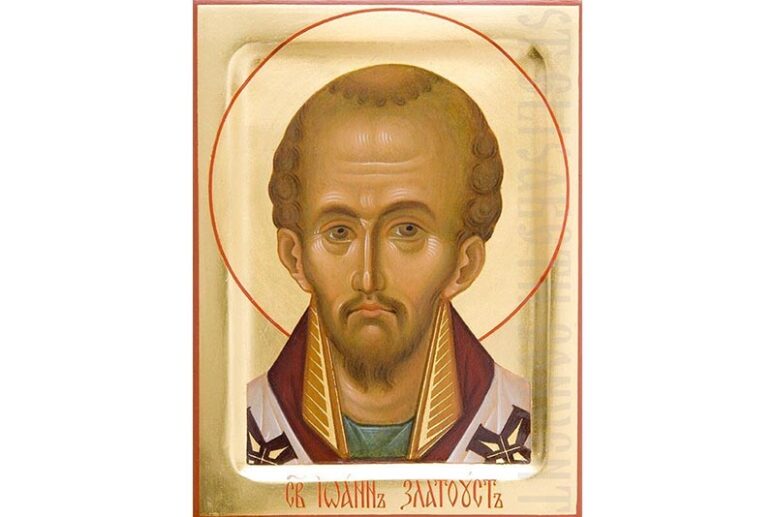
Priest Valery Dukhanin: “It is important to understand that eternal torment is not the punishment of an angry Deity, but the result of man’s inner self-determination.”
Why did God allow suffering rather than prevent it?
God gave man his Image, an integral part of which is free will. Suffering and evil entered the world through man. If God always prevented man from doing things that did not please Him, then man’s free will could no longer be called free.
Archpriest Igor Shumilov: There is an old joke that gives an exhaustive answer to this question.
People are asking a priest to consecrate their apartment:
“Father, you can consecrate it for us very well, so that all the bad things go away?”
“All of them?” the priest asks.
“Yes, so that nothing evil is left.”
“Sure. But where will you live then?”
Can everyone be saved?
The short answer is “no”. Scripture clearly states the criteria for salvation and and names the necessary conditions for it: active faith and its confession (see John 3:16-18, Acts 16:31, Romans 10:9-10, James 2:17), repentance (see Luke 15:7), Baptism (see John 3:5, Mark 16:16), participation in the Eucharist (see John 6:53-54).
If a person dies without faith, repentance and participation in the Sacraments, then how can he be saved? Is the Lord lying when He says, “Truly, truly, I say to you, unless one is born anew, he cannot see the kingdom of God”? (John 3:3)
Priest Valery Dukhanin: “How can a soul accustomed only to carnal passionate feelings, primitive profit and selfishness be allowed to enter Heaven accessible only to those who have learned spiritual things while still on earth? A soul hardened in pride, anger, and envy after a life of carnal pleasures will be unable to enjoy the bounties of eternal heavenly life; they will be incomprehensible and alien to such a soul, making the latter completely unsuitable for Heaven.
C.S. Lewis: I would pay any price to be able to say truthfully “All will be saved.” But my reason retorts, “Without their will, or with it?” If I say “Without their will” I at once perceive a contradiction; how can the supreme voluntary act of self-surrender be involuntary? If I say “With their will,” my reason replies “How if they will not give in?”
Hell is not a sentence imposed on a person but the mere fact of being what he is. The characteristic of lost souls is “their rejection of everything that is not simply themselves”.
Could the lines of Scripture speaking of the eternity of hell’s torment be written for “pedagogical” purposes?
Any deliberate distortion of the truth is a lie. God is the source of truth, not lies. To say that is the same as calling God a liar.
St. John Chrysostom: “The devil persuades some to think that there is no hell, so that he can throw them into it. The Lord, on the other hand, commissions us to speak of these things so that we might be saved, so that we will be afraid of that danger and will come to Him.”
Is Salvation possible after enduring torment in hell?
After the Last Judgement, no change of state will be possible: there will be only eternity. In this case, the perpetuity of punishment or bliss is rather eternity in terms of a qualitative state of the soul, rather than pertaining to time. It is a synonym for immutability, since time will cease to exist (see Rev. 10:6). That which man comes to by the end of his life, with that he will remain.
Archimandrite Raphael (Karelin): “[Theories about the possibility of salvation after death deny] the most important thing for an afterlife encounter with the Savior and eternal union with Him, i. e. faith as a matter of free choice, an act of will, and a necessity for one’s moral determination – faith in Christ the Redeemer and Savior […] without which no true love for God is possible. [In hell,] a non-believer leaps from the realm of ignorance into the realm of the obvious, where he encounters Christ in His divine glory. Here a person is determined by this obviousness, while the possibility of belief or disbelief is taken away. His moral attitude toward God is therefore no longer possible, and without it there can be no inner union. A person who has spent his life binding his soul to the idols of his own passions and false beliefs (all of which come from the Devil) cannot enter into unity with the Almighty.”
Some Holy Fathers speak of the possibility of a certain post-mortem baptism by fire that is not salvific and is rather a kind of last resort to limit sin.
Is it possible to alleviate the fate of departed souls before the Judgement?
The souls of the departed awaiting the Judgement are dwelling in imperfect states due to their separation from the body. Depending on their faith and deeds during earthly life, some experience joy and relief, while others feel sadness and heaviness. The Church teaches that those who have not had enough time to bear the fruits of repentance can still be helped and even freed from this sorrow through prayer and good deeds done on their behalf. Commemoration at the Liturgy is of particular importance in this regard.
Righteous John of Kronstadt: The time and place for the action of grace is only here. After death, it is only the prayers of the Church that have an effect, and then only on repentant sinners, on those whose souls are susceptible and bear the light of good works, which they have taken with them and to which the grace of God or the graceful prayers of the Church can be grafted.
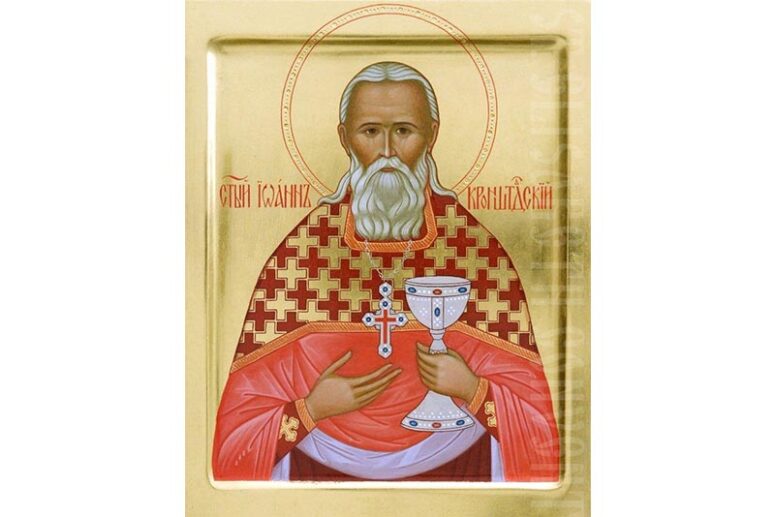
Is heavenly bliss eternal?
Yes. This is the cornerstone of Christian hope. Christ repeatedly said that this life would be eternal, unceasing, immutable and indestructible: “My sheep hear my voice, and I know them; and they follow me. And I give them eternal life, and they shall never perish; and no one shall snatch them out of my hand” (John 10:27-28, see also John 3:16, 1 Thess. 4:17, Matt. 25:46, John 6:40, John 17:3 , 1 Peter 1:3-4).
* * *
God did not create hell. When he created man, he immediately placed him in the Garden of Eden. How did sin, death and evil enter the world? Through man. This was the beginning of hell. If man were not willingly headed downward, there would be no hell. Just as the kingdom of God is in the midst of us with no signs to be observed (see Luke 17:20-21), so is its opposite. This is why the Fathers say that although the soul suffers after death from being separated from the body, it does not change qualitatively. If you sow hell in your soul, you will reap it.
When a person pursues hell, it is only his will that is at work. But when he aspires to the Kingdom, then the will of man coincides with the will of God. The Lord will never leave such a person, strengthening those who sincerely want to be with Him. God does even more for man’s salvation than man can do himself. It was because of His love for man and for the sake of man’s salvation that He came and sacrificed Himself: “For God so loved the world that he gave his one and only Son, that whoever believes in him shall not perish but have eternal life.” (John 3:16).
Archpriest Dimitry Smirnov: “You are telling me that there is no hell. How can there be no hell, when you live in it? If you don’t believe me, come to the mirror and look at your grim face. How could the crown of creation, the supreme work of God, have such a gloomy mug? Why are you feeling so bad? If you are so smart, so free, and you don’t care about anything, and you know everything… Then why do you look so unhappy? Because you’re in hell, son. In hell! You do not know joy. You are dead. Things are hard for you, they disgust you, they torment you; everything irritates you… People, flies… The heat annoys you, the rain annoys you, politicians annoy you – everything annoys you and makes you sick: your dad, your mom, your grandpa, your grandma, your neighbours… […] Everything seems painful and disgusting to you, nothing pleases you. Even the nightingales disturb your sleep. So you want to get away from it somewhere… You want to fall asleep, to forget about it, to get drunk, to get high, to escape it. Why? Because you’re in hell! You don’t even need to do anything to get there… You have been in hell for a long time, and there is only one way out – God!”
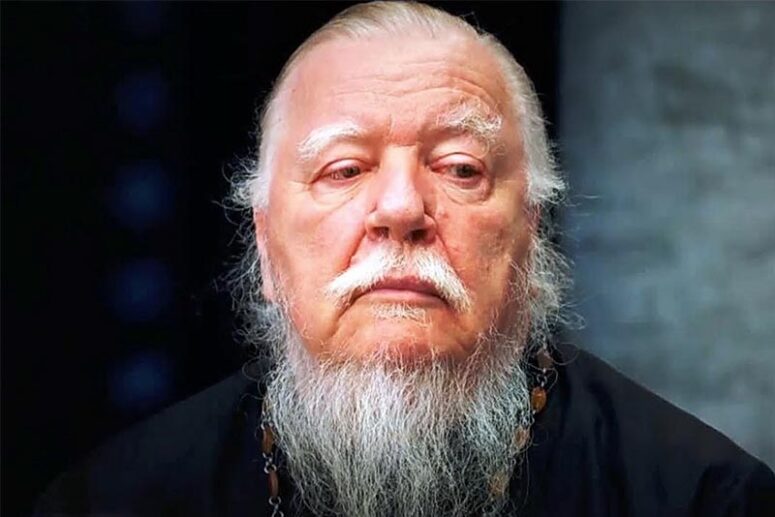


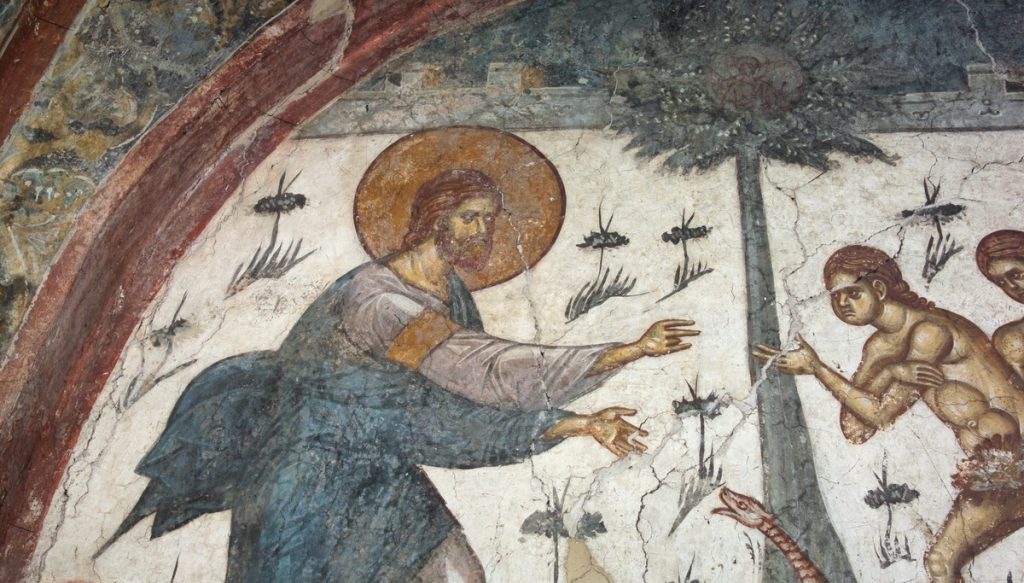


I doubt this will pass your censors, but I count not disagree more with the “theologian.”
Yes, the Lord repeatedly declares this unambiguously: “Then he will say to those at his left hand, ‘Depart from me, you cursed, into the eternal fire prepared for the devil and his angels…” (Matt. 25:41, see also Matt. 25:46, Mark 9:43, Rev. 14:11).
NO. HE. DID. NOT!
If our Lord so clearly said this as the author infers, then how did the first 500 years of Christians, with a number of highly revered saints, get this so wrong, especially since they were Greek-speaking saints and would have read the Scriptures in their native tongue? How could men like St. Gregory of Nyssa (called “The Father of the Fathers”) and St. Isaac of Syria have read the Scriptures and come up with the idea that eventually all men will be saved if the Scriptures clearly teach an unending and eternal punishment. Why don’t you know that it was the Latin Church, beginning with St. Augustine, who formulated several horrid doctrines which are anathema in the Orthodox Church, who began to attack Apokatastasis. Why are you not aware at all that the Greek word “aionios” does not mean eternal, but means “age-lasting?” If you are going to make a statement, you better have some serious proof upon which to base your allegations, and you better have an answer to Greek scholars, such as Dr. Illaria Ramelli, who clearly teach that the Greek word “aionios,” found in Matthew 25:46, for instance, in no way means “eternal.” There is a clear and different word in Greek for eternal – adidios.
Hieromonk Job (Gumerov) “Perplexity about the eternity of hell reveals a narrow formal understanding of the issue. Hell is eternal, not because Divine Justice so desires, but because a soul bound to sin remains so forever.”
And HOW do you know this? Have you been on the other side of death and entered into the secret councils of the Lord? The Orthodox Church claims that the three-legged stool of truth is Scripture, the ecumenical councils, and the Fathers. Well, this statement violates all three. The Scriptures do not teach an eternity of hell. They are violently mistranslated in some places, such as Matthew 25:46. The councils of the Church nowhere teach such a thing (Constantinople II did not teach this in the original canons). And authors such as this one conveniently ignore men like St. Gregory of Nyssa and St. Issac of Syria, along with the Cappadocian Fathers, St. Macarina, and a host of others, in favor of mistranslated quotes from Fathers which support the idea of an eternal hell. Furthermore, unlike the heretical statements of the Roman Catholic Church, there is neither a set catechism of Orthodoxy, nor is there any teaching from the ecumenical councils on this issue, yet the Orthodox treat it as if it is a set dogma.
Venerable Barsanuphius of Optina: “At the present time, the laity, as well as young clergy is coming to believe that eternal torment is incompatible with God’s infinite mercy and that, therefore, torment of hell is not eternal. […] An incurable bodily disease ends in death, but how can a mental disease end when there is no death for the soul?”
Utterly false analogy. If you are going to use the analogy of disease, then you are saying that God is incapble of healing a soul. It also defies the position of Orthodoxy regarding the salvific work of Christ on the Cross. Orthodoxy does not believe in or teach a “legal punishment” from the Cross. What we are told is that salvation is medicinal, that is, that the work of the Cross is for the healing of the soul, not for its damnation. Furthermore, in two days, all Orthodox will be singing, with considerable gusto: “Christ is risen from the dead, by DEATH HE CONQUERED DEATH.” Did the author even THINK about this when copied this quote? If an eternal hell, which is the state of death (separation from God) is true, then Christ DID NOT conquer death and this hymn is a damnable LIE!
Finally, look at that picture! Is that justice in any sense of the word? No, that is sick and twisted Medieval Roman Catholicism at its worst. How dare you try to say in the same breath that God is love and yet post such a picture, as if love would EVER do such a thing to the object of its love. This picture is completely out of sync with both love and justice.
Christ is risen!
If some Greek fathers believed this, it does not mean that the rest of the Greek fathers believed it. There is no difficulty in finding evidence for this, so I will not dwell on it. Similar to that, some fathers before the Council of Nicaea held an opinion that is now known as pre-nicene subordinationism. Later it was condemned. Case closed. Both cases closed.
Another thing I want to say is that St. Mark of Ephesus, speaking against the Latins, said this about St. Gregory’s words on apocatastasis: “it would be better to leave them silent and not at all force us, for the sake of our defense, to bring them explicitly to the middle. He went on, referring to St. John Climacus and the Fifth Ecumenical Council, to affirm the condemnation of apocatastasis by the Orthodox Church. Would you also call St. Mark of Ephesus a roman catholic heretic?
The same word ‘aionios’ is used when describing the eternal life. Does it mean that eternal life is “in no way means eternal”?
I don’t really have time to further explain that which is obvious in the Church doctrine. The 5th Ecumenical Council condemns it (which you don’t recognize for some reason), most fathers do not recognize it, the anathemas to apocatastasis are held in various local councils (eg. council of Constantinople 1583: ‘Those who believe in purgatory, that is that postmortem penance and purification is achieved by physical fire and those who hold like Origen that the flames of hell are not everlasting’), the anathemas to those who do not believe in the eternity of hell are proclaimed during the Sunday of the Triumph of Orthodoxy. Sapienti sat
More and more Orthodox are starting to believe in the ancient belief of Apocatastasis, which was taught by the Church for 500 years before the Roman church started to attack it. Men like St. Gregory of Nyssa and St. Isaac of Syria openly taught it.
You refused to publish my objections to this piece. Shame on you!
We need the option to print these great articles so that we can share them on paper… Can you add a print button so it just prints the article, and not the whole web page? 🙏